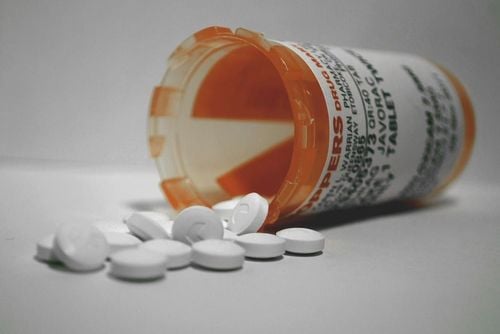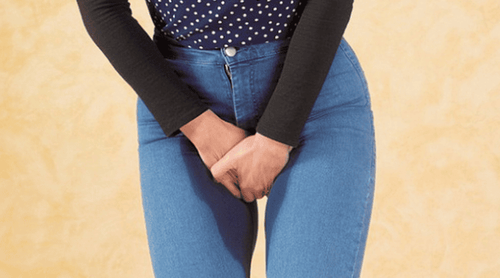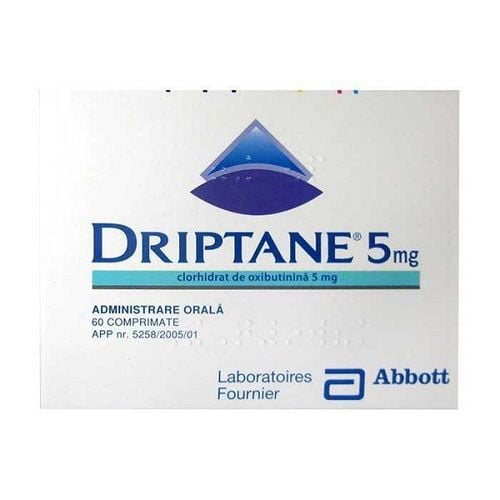This is an automatically translated article.
One of the common symptoms in postpartum women is urinary incontinence. To give birth, women need to work hard, the muscles around the bladder and urethra become weak and it is difficult to control urination. For women who choose an epidural delivery method, there is often a feeling of numbness in the perineum, causing urinary incontinence.Postpartum urinary incontinence can go away on its own after 3 to 6 months. But urinary incontinence can also last longer, even years after the urination has not returned to normal.
1. What is postpartum urinary incontinence?
Losing the ability to control urination with urinary incontinence makes many women very worried, especially in the postpartum period. Urinary incontinence is urine leakage or an uncontrolled release of urine. Sometimes only a few drops of urine leak, but it can also be more in some cases, causing the bladder to completely empty.According to statistics, up to 30% of women between the ages of 20 and 55 suffer from urinary incontinence, this is the reproductive age in women. About 30 to 50% of these people have severe urinary incontinence.
Normally, the nerves, ligaments, and pelvic floor muscles work together to support the bladder and keep the urethra closed so urine doesn't leak. Drinking too much water or damaging these organs during pregnancy or childbirth can cause urine leakage.
Urinary incontinence is a fairly common condition, but urinary incontinence in postpartum women is not a sign of a certain disease. This condition is similar to urinary incontinence in the elderly, urinary incontinence in children or in pregnant women. When the body changes, urinary incontinence in these subjects is understood as an inevitable course.
This is not to say that postpartum urinary incontinence does not need to be treated. The severity of postpartum urinary incontinence becomes worse in those who have had it in old age.
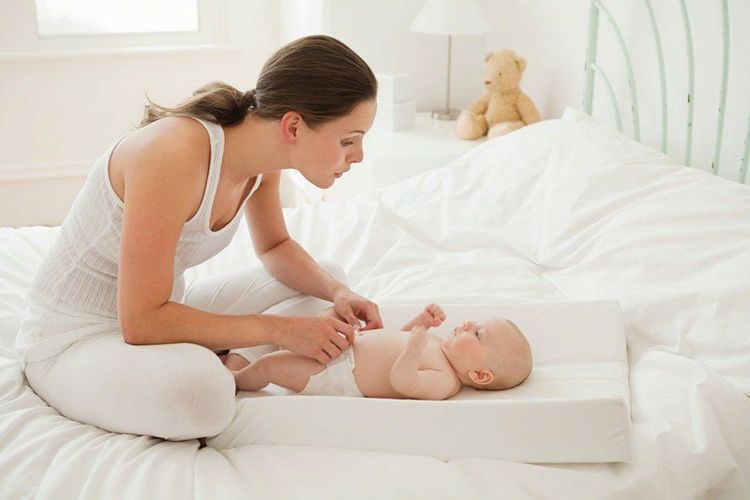
Tiểu không tự chủ là tình trạng diễn ra khá phổ biến, tuy nhiên tiểu không tự chủ ở phụ nữ sau sinh cũng không phải là dấu hiệu của bệnh lý nào đó
2. Causes of urinary incontinence after birth
The main cause of urinary incontinence is impaired urethral support and impaired bladder control, not only after giving birth, in fact pregnant women are at The third trimester also often has symptoms of urinary incontinence due to the pressure of the fetus on the bladder.The muscle tissue is stretched too much due to multiple births, large babies, labor, pushing... The pelvic floor is weakened as well as the nerves controlling the bladder are weakened, so you feel difficulty in controlling urination.
The implementation of epidural anesthesia technique for women giving birth by cesarean section also affects the perineum area with numbness, spinal nerves are affected leading to urinary incontinence or urinary incontinence. occurs at least 3-6 months after birth but can also last for many years.
In addition, the cause of urinary incontinence after childbirth can also be due to:
Inflammation, urinary tract infection: The patient has frequent urination, urinary incontinence when suffering from urethral diseases, cystitis Diabetes: The pressure on the kidneys increases due to too much sugar in the body, causing the secretion to be stimulated, causing frequent urination, urinary incontinence. Neurological diseases such as neurological disorders, spinal sclerosis...: the body will have reflexes to urge us to urinate in the case of normal people when the bladder is full. The brain, spinal cord, and peripheral nerves control this reflex. However, the reflex to urinate occurs at the wrong time if there is a neurological problem, leading to urinary incontinence. In addition, some other diseases can cause urinary incontinence after childbirth, such as: high blood pressure, diabetes, chronic constipation, fibroids, kidney failure, kidney cancer, radiation therapy. Pelvic floor or spinal cord injury ...
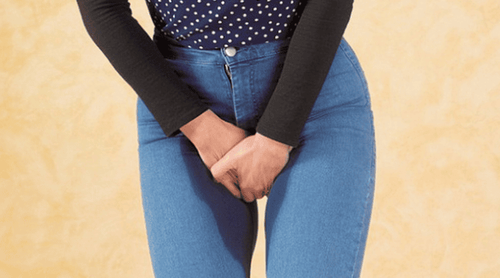
Nguyên nhân chính dẫn đến tình trạng tiểu không tự chủ là do sức nâng đỡ của niệu đạo bị suy yếu và khả năng kiểm soát của bàng quang bị rối loạn
Every time they cough, sneeze, laugh, exercise vigorously, change positions, urine leakage or urine release occurs. Urinating many times at night Urinating many times a day, very hungry, but when urinating, you can pass a very small amount, after urinating, you feel the need to urinate When you have sex, you need to urinate, but a lot when the pants are wet without knowing Pain, burning, discomfort, pain in the private area, pain in the lower abdomen, lower back when urinating, maybe even blood in urine
3. Who is more likely to experience urinary incontinence after giving birth?
Obese women are more likely to have postpartum urinary incontinence. Many studies show that this condition is the most important risk factor for urinary incontinence.Women who experience stress incontinence during or before pregnancy are also prone to urinary incontinence after giving birth, sometimes lasting up to several years.
You may be more prone to urinary incontinence after giving birth if you had a vaginal delivery. However, some cases of caesarean section still have urinary incontinence after birth.
Recent research suggests that genetic factors may also play a role.
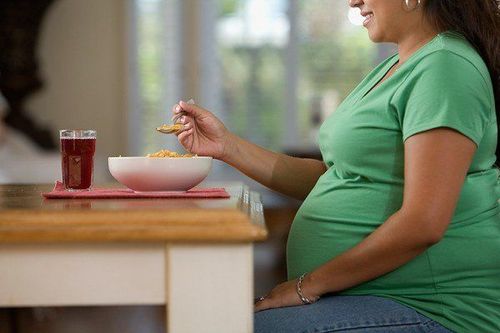
Phụ nữ béo phì có nhiều khả năng mắc chứng tiểu không tự chủ sau sinh
4. How long does postpartum urinary incontinence usually last?
For some women, postpartum urination stops or subsides within a few weeks of giving birth. While in some other cases it can persist to varying degrees for several months or even longer.Some people continue to have urinary incontinence after many years because it is quite common in older people. Postmenopausal women are also at increased risk for this condition, regardless of the number of pregnancies or method of delivery.
5. Treatment of urinary incontinence after birth
To determine the cause of your urinary incontinence, your doctor will perform a physical exam to rule out a urinary tract infection (especially if you also have symptoms such as pain or burning). while urinating).If that is not the cause, your doctor will refer you to a urologist for evaluation. Doctors often recommend that pregnant women start by doing Kegel exercises regularly and make them a lifelong habit. When done correctly and regularly, these exercises can strengthen your pelvic floor muscles and give you better bladder control.
If you were obese while you were pregnant, or if you gained more weight than recommended, these exercises can help with weight loss through diet and exercise.
You can also :
Wear tampons to protect your clothes from getting wet. Try crossing your legs and squeezing your pelvic muscles when you feel a sneeze or cough. Limit alcohol and caffeine intake. (There is some evidence that consuming less caffeine may help.) Prevent constipation because straining to have a bowel movement can make the problem worse. If you continue to have incontinence for more than a month after doing regular Kegel exercises, you should get help from a pelvic floor rehabilitation physical therapist.

Bác sĩ thường khuyên sản phụ nên bắt đầu bằng cách tập Kegel thường xuyên và biến chúng thành thói quen suốt đời
Patients should not let their bladder fill with urine, when feeling the need to urinate, they should urinate immediately in order to limit and soon recover urinary incontinence. When having urinary incontinence, pregnant women can practice by: When inhaling, contract the vaginal muscles, slowly exhale while relaxing the muscles. Patients should seek medical attention if urinary incontinence persists after giving birth.
If the disease still does not improve, persists after performing the exercises as directed by the doctor, surgery is a useful option for you. Surgical placement of a urethral support pad at the sphincter that controls urination is the most common method today. This surgery is painless for the patient. After surgery, about 90% of women recover completely.
After 9 months and 10 days of heavy weight, pregnant women go into labor and face a level of labor pain comparable to 20 broken ribs at the same time. In order for the birth to go smoothly and safely, pregnant women need to understand: - How the labor process takes place, how long does it usually take to have a normal delivery or cesarean section, to protect the best health? for the unborn baby.
Methods to relieve pain during childbirth, limit pain and relieve psychological pressure during labor. The way to push and breathe during childbirth is usually the right way so that the labor takes place quickly, the pregnant woman does not lose strength during childbirth. How to control postpartum uterine contractions in the shortest time. How to take care of the perineal suture does not cause infection and dangerous complications. Early postpartum re-examination to detect dangerous abnormalities such as residual placenta, missing gauze. Take care of the newborn until full month healthy. To ease the pain of childbirth, Vinmec offers a full Maternity program with a complete "painless delivery" service during and after birth using non-morphine epidural and sedation techniques. ashamed. During the birth process, the mother will be guided by the midwives on how to push and breathe properly, the baby will be born in just 10-15 minutes. After birth, the baby will be cared for in a sterile room before being returned to the mother.
Pregnant women will rest in a high-class hospital room, designed according to international hotel standards, 1 mother 1 room with full facilities and modern equipment. Mothers will be consulted by nutritionists on how to feed the baby before being discharged from the hospital. Postpartum follow-up with both mother and baby with leading Obstetricians and Pediatricians.
Please dial HOTLINE for more information or register for an appointment HERE. Download MyVinmec app to make appointments faster and to manage your bookings easily.
Reference source: babycenter.comSEE MORE
What is urinary incontinence? Urinary incontinence: Causes and treatment Bladder rehabilitation in patients with urinary incontinence




